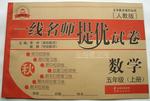题目内容
We answer some questions this week in our series on getting into an American college or university.
The first question has to do with our recent discussion of English language tests.Vo Ngoc Toan from Vietnam would like to know about the TOEIC,which is designed to men―sure skills in English as spoken in the workplace.People may be required to take it if they apply for jobs with companies or other employers.But TOEIC scores aren’t used for college admission in the United States.
The Educational Testing Service administrates the TOEIC.It says the test measures the language skills of people working in an international environment.But,American colleges and universities accept scores from the TOEFL and often the IELTS.If you missed our report on these tests.you can find it at our website www.unsv.com.
Tahir Mahmood from Pakistan asks how to improve his English before taking these kinds of tests.Well,you can start by looking for ways to use English as much as you can.Watch American movies and TV shows and read books in English.Look for English speakers to talk to.
The Internet has many free materials for English t learners.Visitors to www.unsv.com,for example,can read, listen and watch programs on many,different subjects. The
And,finally,we have questions from Iran,Afghanistan and Indonesia about how to pay for an education through jobs.There’re rules that restrict the kinds of jobs that foreign students can have while studying. in the United States.
61.The purpose of the passage is .
A.to ask some questions on entering American universities
B.to introduce readers the TOEIC
C.to attract more people to click the websites
D.to help do with some puzzles on entering American colleges
62.What do we know about TOEIC?
A.It is a must for those who go to American universities.
B.Those who apply for a job with companies have to take it.
C.It is to test a person’s language skills in the workplace.
D.It’s a test designed for students to graduate from universities.
63.How many questions are answered in this passage?
A.2 B.3 C.4 D.5
64.If you want to learn English, you can go to the following websites EXCEPT .
A.www.unsv.com B.www.nationalpostdoc.org
C.www.usalearns.org D.www.chinadaily.com.cn
65.We can conclude from the passage that
A.foreign students are not permitted to do whatever jobs they like in the
B.IELTS is also necessary for job application like TOEIC.
C.every graduate from colleges can get a postdoctoral position if they want to
D.students from Iran aren’t.allowed to have jobs in

 一线名师提优试卷系列答案
一线名师提优试卷系列答案 阳光试卷单元测试卷系列答案
阳光试卷单元测试卷系列答案 ach other.”
ach other.”